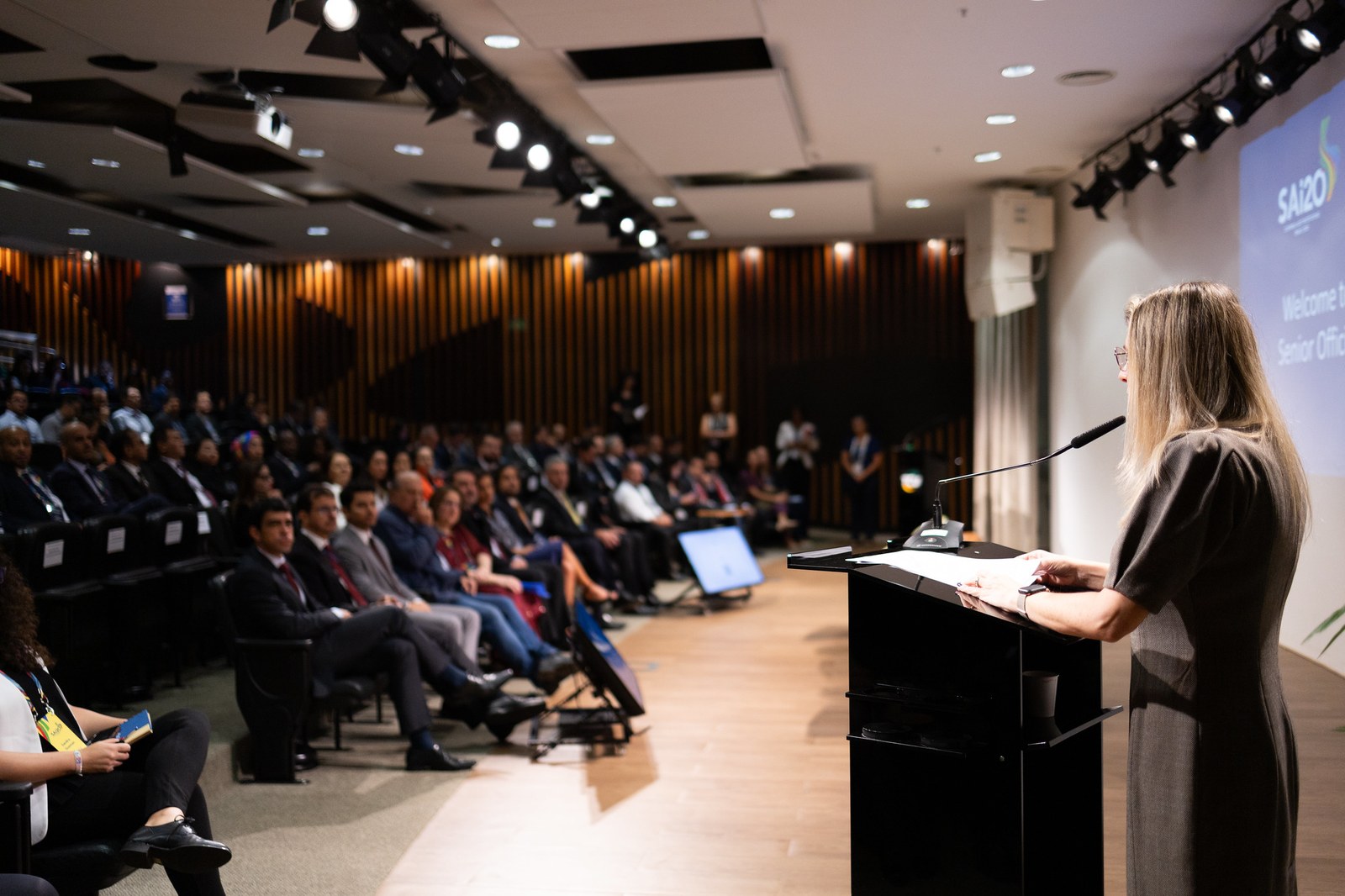SAI20: G20 Supreme Audit Institutions prioritize discussion on hunger and the climate crisis
Delegations from 14 G20 countries gathered at the TCU in Brasilia to deliberate on the responsibilities of Supreme Audit Institutions (SAIs) within G20 member countries concerning sustainable development, global equity, climate financing, and the fight against hunger and poverty. The discussions centered around governance, transparency, and accountability as crucial pillars in addressing these pressing global challenges.
Delegations from 14 G20 countries gathered at the Brazilian Federal Court of Accounts (TCU) headquarters in Brasilia for the Senior Officials Meeting, hosted by the Supreme Audit Institutions (SAI20) Engagement Group. The central agenda of this high-level gathering was to discuss the roles of Supreme Audit Institutions (SAIs) within G20 member countries concerning sustainable development, global equality, climate financing, and the fight against hunger and poverty. The discussions revolved around governance, transparency, and accountability as essential elements in addressing these critical global issues.

The participating countries included those forming the G20 Troika, which comprises the current, previous, and forthcoming presidencies of the global cooperation forum. These presidencies are held by India (2023), Brasil (2024), and South Africa (2025).
Ana Paula Sampaio, the Secretary-General of External Control at TCU and coordinator of SAI20, highlights that Supreme Audit Institutions bear the responsibility of overseeing public administration in each country, monitoring public policies, and ensuring the proper utilization of public resources within their designated domains concerning the selected themes. This guidance shapes the event's agenda and influences discussions within the G20. The work of the Brazilian Federal Court of Accounts is globally esteemed, with the institution currently leading both SAI20 and the International Organization of Supreme Audit Institutions (INTOSAI), which represents over 190 countries.
Regarding the topics proposed by the event organizers, invited panelists expressed confidence in the G20's ability to devise strategies to address hunger and poverty. There was a unanimous acknowledgment that the challenges stemming from the climate crisis demand immediate attention and solutions. A key emphasis was placed on the necessity for countries to take proactive measures in formulating effective public policies pertaining to these crucial issues.
It is understood that supreme institutions possess the full capability to collaborate in identifying indicators, technologies, and opportunities. Consequently, experts assert that the SAI20 engages with G20 countries to surmount challenges and attain effective responses.
In the context of the Global South, it is crucial that resources are allocated to those individuals and communities with the greatest need
Sybrand Struwig, Senior Manager at the Head of Audit National Office of South Africa, underscored the significance of integrating governance, self-determination, and oversight within G20 deliberations. He highlights that governmental decisions directly impact citizens' lives and stresses the global relevance of G20 agenda items. According to Struwig, being part of the global community and oversight institutions can assist governments in identifying misalignments and ensuring that implemented policies effectively address the needs of the population. Struwig asserts, “Governance is essential to prioritizing decisions that promote the well-being of humanity and to subjecting governmental and global organizational actions to rigorous scrutiny.”
In addressing recommendations to combat hunger and inequality, Sybrand Struwig stressed the significance of pinpointing and correcting deficiencies within financial assistance systems to guarantee that resources are directed towards those most in need, thereby preventing instances of corruption and fraud. He underscored the South African government's dedication to fortifying resource distribution mechanisms to ensure their effective allocation to deserving recipients.
Ana Paula Sampaio, the Secretary-General of External Control at TCU and coordinator of SAI20, highlights that Supreme Audit Institutions bear the responsibility of overseeing public administration in each country, monitoring public policies, and ensuring the proper utilization of public resources within their designated domains concerning the selected themes. This guidance shapes the event's agenda and influences discussions within the G20.
Parveen Mehta, Deputy Comptroller and Auditor General of India, addressed the significance of integrating governance and control into G20 discussions. She emphasizes that in the face of alternative choices and limited resources, continuous evaluation is essential to optimize and rectify policy decisions. Mehta asserts, “G20 priorities such as climate financing and the fight against hunger and poverty are interlinked, as climate change affects all facets of life and exacerbates challenges such as poverty and hunger.”
Parveen emphasized the importance of accountability and transparency in policy implementation, highlighting the pivotal role of supreme audit institutions in providing assessments and recommendations to improve both policy formulation and implementation. The Indian representative also expressed concern about the urgency of taking immediate action to attain sustainable development, emphasizing its significance for both present and future generations.
Additionally, the Senior Officials Meeting welcomed representatives from various international organizations, non-governmental organizations, Think Tanks, the Business 20 (B20) Engagement Group, the United Nations Development Programme (UNDP), the World Bank, the Inter-American Development Bank (IDB), and the Brazilian Development Bank (BNDES).